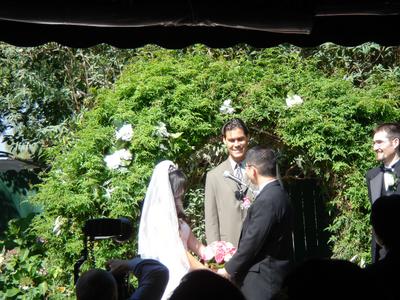I want to make a list of books that I have helped me over the years, both to share and to record for myself. I welcome comments on these selections, and would love to hear about the books that have inspired you, motivated you, or opened your mind. This is an ongoing post so with updates the post date will update as well.
Posted 12/19/06:
Emotional Intelligence, Daniel Goleman - The most interesting concept that this book introduced to me was the idea that as far as the evolutionary time-line goes, man has relied on his emotional responses far longer (perhaps one million years) than his ability to communicate (perhaps 10,000 years) for survival. Thus it is to be expected that at some level our emotions would tend to get the better of us without careful development of emotional control and maturity.* Goleman also gives quite a few explanations for the physiological responses we exhibit when experiencing the emotions common to all. For example:
With fear blood goes to the large skeletal muscles, such as in the legs, making it easier to flee — and making the face blanch as blood is shunted away from it (creating the feeling that the blood "runs cold"). At the same time, the body freezes, if only for a moment, perhaps allowing time to gauge whether hiding might be a better reaction. Circuits in the brain's emotional centers trigger a flood of hormones that put the body on general alert, making it edgy and ready for action, and attention fixates on the threat at hand, the better to evaluate what response to make.
I find his reasoning very enlightening as it gave a lot of rationale behind the expressions of emotion that recognize so vividly yet never thought to wonder why they are just so.
The majority of the book is essentially a call to revolutionize the curriculum of standardized teaching to better equip youth for the emotional challenges that they face in today's world. While admirable, I found myself skeptical of the book's ability to reform the current state of society which seems to leave the education of such subjects to community and family. Nevertheless it is a very illuminating work.
* Incidentally a similar line of reasoning was also brought up in an artificial intelligence paper that I reported on for a class recently, Intelligence without Representation. In it Brooks argues that most of evolution has been spent figuring out how to interact and respond to a dynamic environment, whereas the typical problem-solving behavior was developed in a fraction of the time in comparison. His argument is that the true basis of intelligence is in the former, rather than the latter, which at the time was where most artificial intelligence work was being focused.
Posted 4/28/05:
God Will Make a Way, Cloud & Townsend - See my commentary in a different post.
Posted 8/14/04:
The Disciplined Life, Taylor - Almost everyone I know really hated this book, but I really enjoyed it for some reason. I think in some weird way it empowered me. I guess I feel like I found a lot of validation for some of the things I tend to do naturally.
The Making of a Man of God, Redpath - It's been a while since I have read this one so I don't remember the specifics of why I liked it so much. Mostly it has great insights into David's life and heart.
Humility, Murray - A very humbling book indeed.
A Tale of Three Kings, Edwards - A great study of the enemy within yourself.
Mere Christianity, C. S. Lewis - There are a lot of C. S. Lewis writings that I love, and I think this one compilation is the most valuable. I consider Lewis a quite convincing apologetic.
Trusting God, Bridges - A good answer to the question, "Why do bad things happen to good people." It's one of those paradoxes that you have to hold in constant ... I can't think of the word. Anyway I remember my perspective on the subject shifting subtly while reading this.
How People Grow, Cloud & Townsend - The Shoffs had us read this as a leadership group a few years ago. It was so revolutionary for me that I had to read it about three times to really get it.
Boundaries, Cloud & Townsend - How People Grow made references to this book, so I decided to read it too. There is some overlap, but this one is probably more accessible and straightforward. It's probably where I would have started if I did it all over again.
Boundaries in Dating, Cloud & Townsend - Again, there's some overlap here, but there are some very useful insights specific to dating and romantic relationships. Good stuff.
Making Small Groups Work, Cloud & Townsend - This is a pretty short book that tends to have a lot of "lists", which I am not that fond of, but nevertheless it is a great tool for practically implementing the concepts of the other books in the context of small group. Also there is a section on listening that I found to be completely revolutionary.
The Road Less Travelled, Peck - This book has several interesting insights and perspectives on life and human evolution and such. It does go off in the deep-end at certain points, though. While reading this book I wasn't sure of Peck's precise religious beliefs because he seems to approach from mostly a psychological and secular standpoint. I came to find out (in the next book) that he does indeed profess to be Christian.
The Different Drum, Peck - This is sort of a sequel to The Road Less Travelled. I'm reading this one right now, and it's very good so far.



















